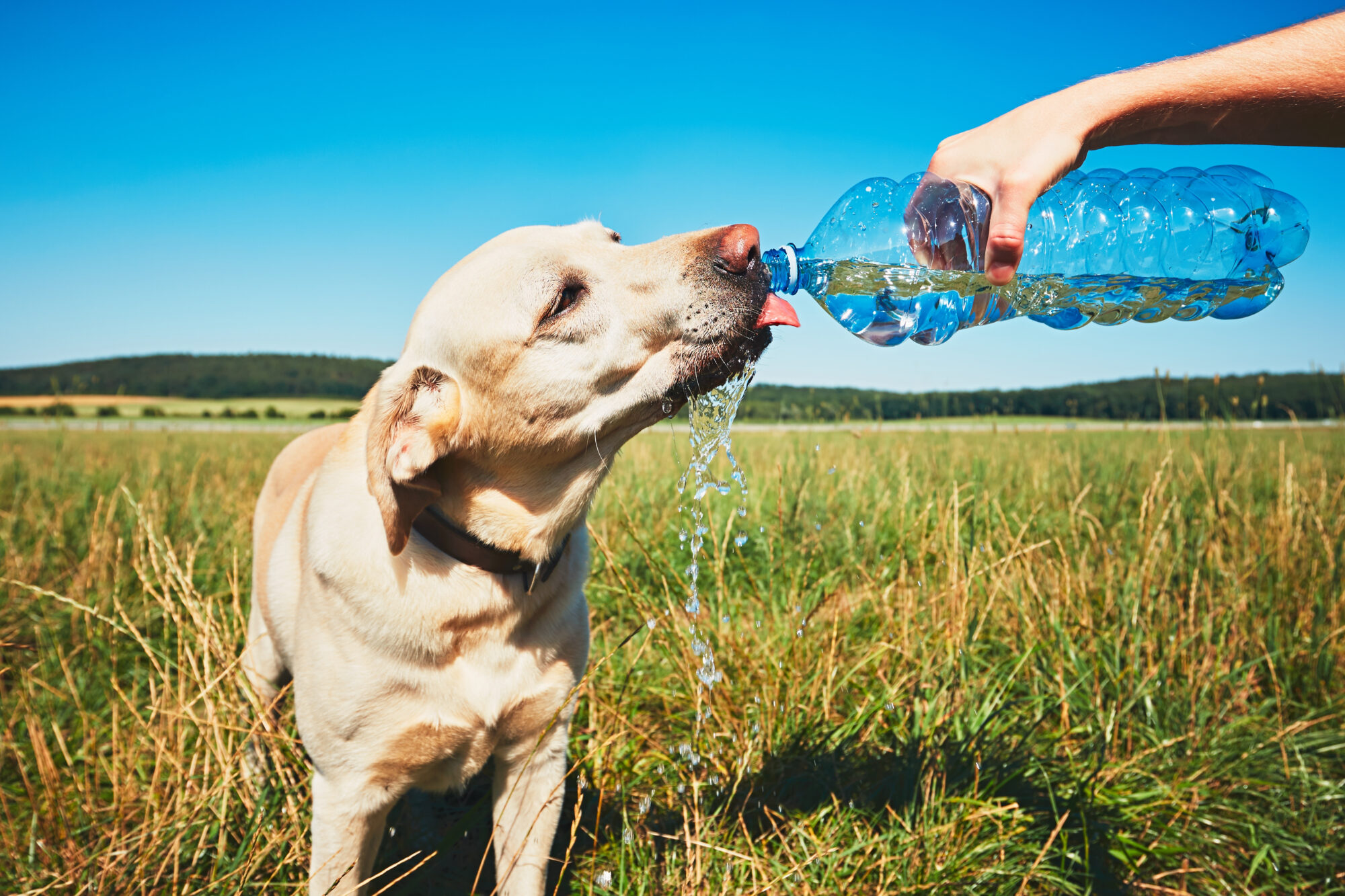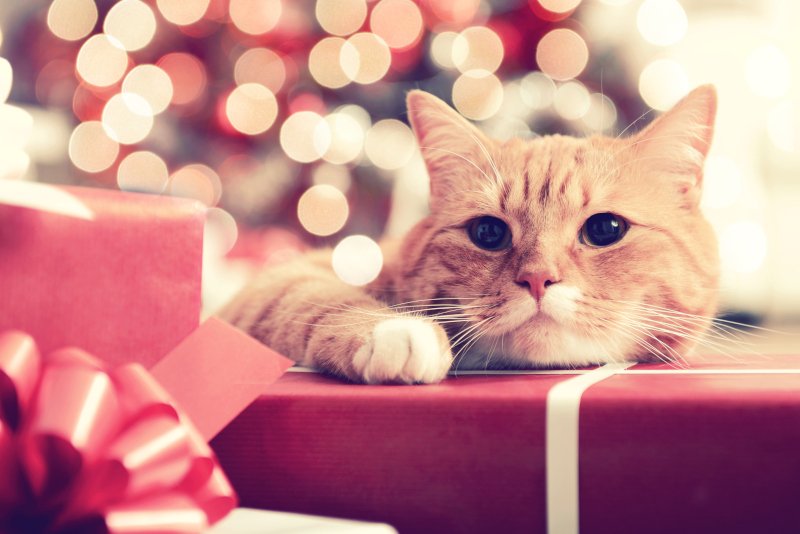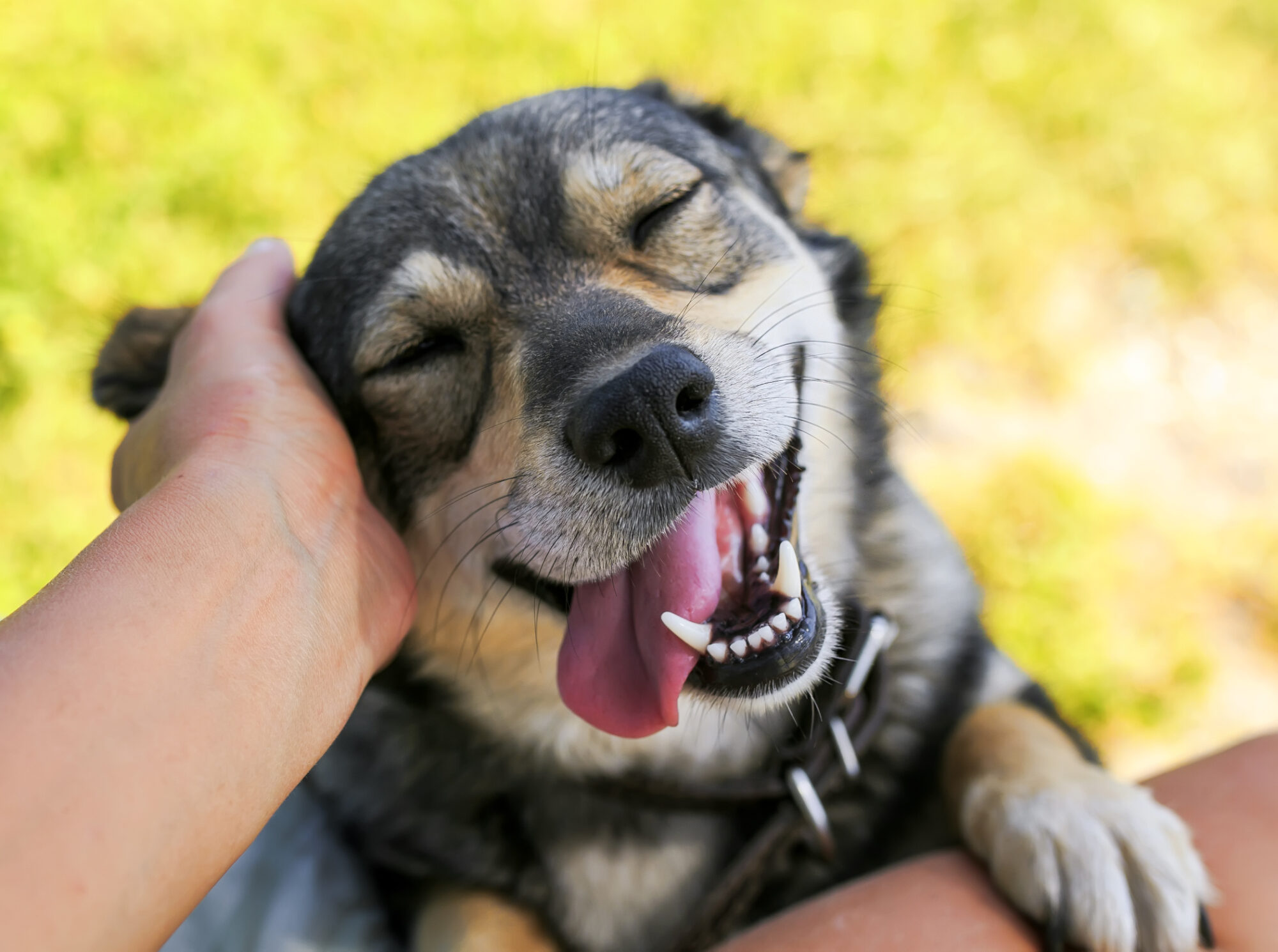
Balanced nutrition is vital for pet health and can prevent a whole host of health problems. Water is also a critical component of a healthy pet and is the main component of healthy cells. Without adequate water, your pet can become dehydrated and lose vital body organ function.
We know that providing drinking water daily to our pets is essential, but what else should we be aware of? With a bit of preparation and awareness, you can ensure your pet drinks enough water and prevent dehydration in your pet. July is National Pet Hydration Month, so Felton Veterinary Hospital thought it would be an excellent time to explore the importance of water for pets.
Water and Your Pet’s Health
Water provides several vital functions for your pet’s health. It regulates body temperature, delivers essential nutrients to cells, lubricates joints, and cushions the brain and spinal cord. Every critical body function requires water.
Without water, your pet can quickly become dehydrated. Dehydration occurs when the body loses more water than it takes in. Puppies and kittens, older pets, cats, and those sick or injured are at a greater risk for dehydration, as are short-faced dog breeds (brachycephalic).
Dehydration: What to Look For
Being vigilant during warm weather is an integral part of responsible pet ownership. Signs of dehydration include:
- Panting
- Tiredness
- Moving more slowly than usual
- Uncoordinated movement
- Loss of appetite
- Sunken eyes
- Dry nose and gums
You can use these two quick ways to check for dehydration in your pet:
- Pull up (or “tent”) the skin between your pet’s shoulder blades and then release it. If the skin returns to a normal appearance, your pet has enough hydration. If the skin remains tented for more than a few seconds or is slowly sinking back to normal, your pet may be dehydrated.
- Press your pet’s gums until the pressure creates a light/ white spot. When released, your pet’s gum color should return to normal within 1-2 seconds. The gums should feel slick and wet, not dry.
How Dehydration Happens
It may not seem like dehydration happens quickly, but the opposite is true. Dehydration in pets is common. Pets lose water through normal body processes, like going to the bathroom, panting, and sweating through their paw pads. They replenish this lost water by eating and drinking.
Dehydration can happen if your pet is not eating or drinking enough, and since inappetence is a sign of dehydration, a vicious cycle often occurs. Exercising or exposing your pet to hot and humid conditions makes them more susceptible to dehydration. Heat stress, heat stroke, and dehydration often happen in tandem.
Cats are especially prone to dehydration for a variety of reasons. Cats may be stressed easily and avoid coming out of hiding to drink. They also tend to be more particular than dogs when water sources are not to their liking. Studies show that cats sometimes exist in a state of chronic dehydration, which can affect their health in various ways, including increasing their risk of developing kidney disease, diabetes, or liver disease.
Water for Pets: Ways to Keep Your Pet Hydrated
Of course, always providing fresh, clean drinking water is critical. Here are some other ideas for keeping your pet hydrated.
- Invest in a pet drinking fountain. Many cats like to drink running water.
- Provide canned food with each meal, which contains more water than kibble.
- Use multiple water bowls in different locations.
- Place water bowls in low-traffic areas if your cat is sensitive or shy,
- Teach your dog to drink from a water bottle and bring collapsable bowls and water on outdoor adventures.
- Don’t let your dog drink from ocean water; the high salt content can disturb electrolyte balances.
- Let cats drink from a dripping water faucet if they want to.
- Test different bowl types (plastic, metal) and sizes. Some cats are incredibly particular and may need other options than you may realize.
If your pet looks wobbly or you notice other signs of dehydration, they must be seen by a veterinarian immediately. When dehydrated, the body needs quick infusion with IV fluids to replace lost water and electrolytes before organ failure can occur. We also need to assess the level of dehydration to determine what other treatment your pet may need.
Establishing good habits with drinking water can make paying attention to the importance of water in pets much more manageable. Each time you reach for your water bottle, check on your pet’s water intake as well. Call us if you have any questions or concerns about the importance of water for your pet.


 Schedule an Appointment
Schedule an Appointment
